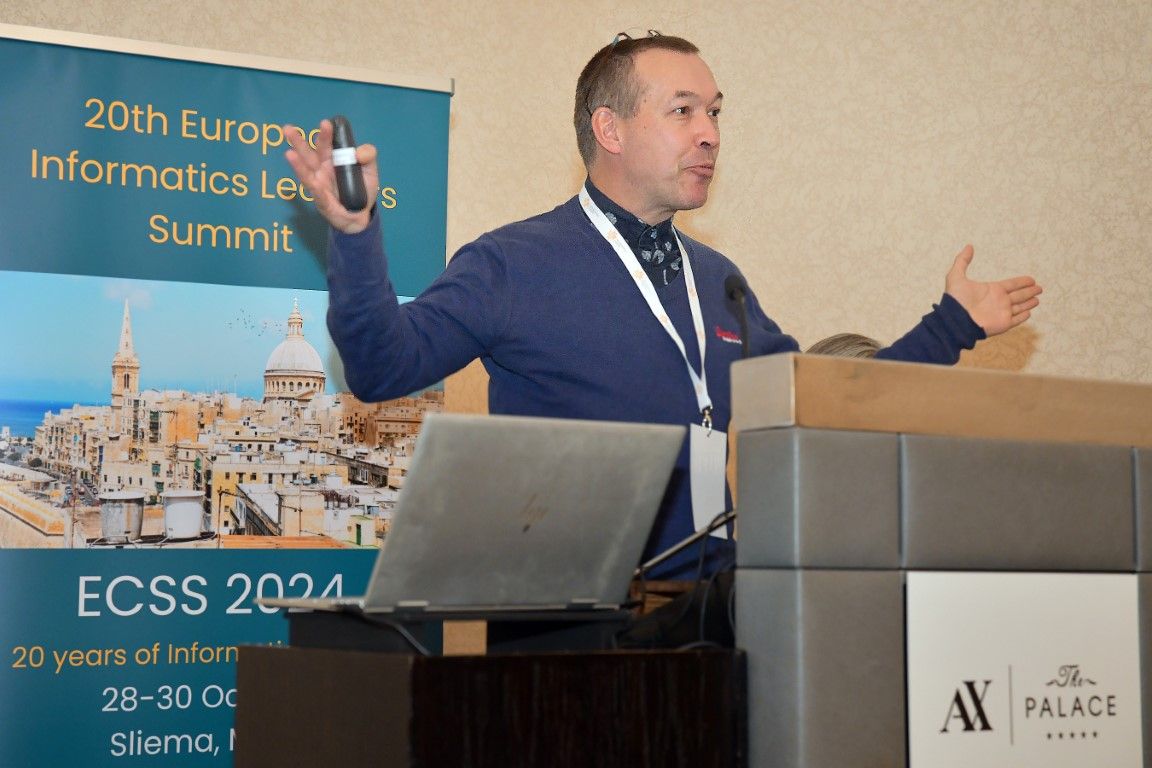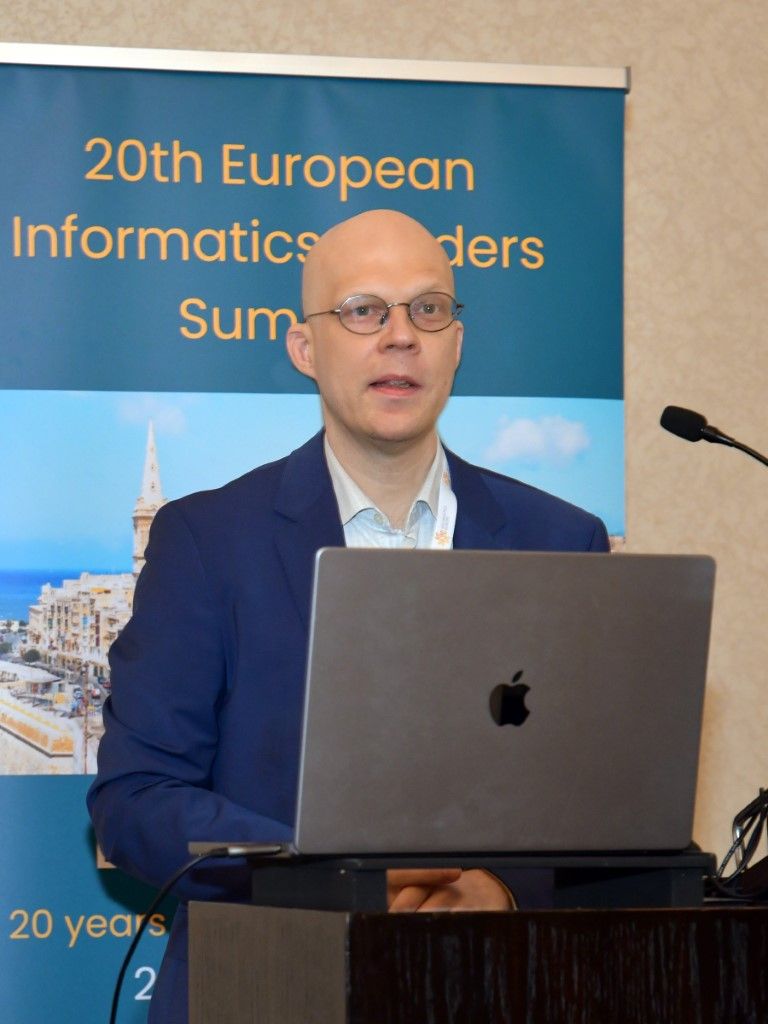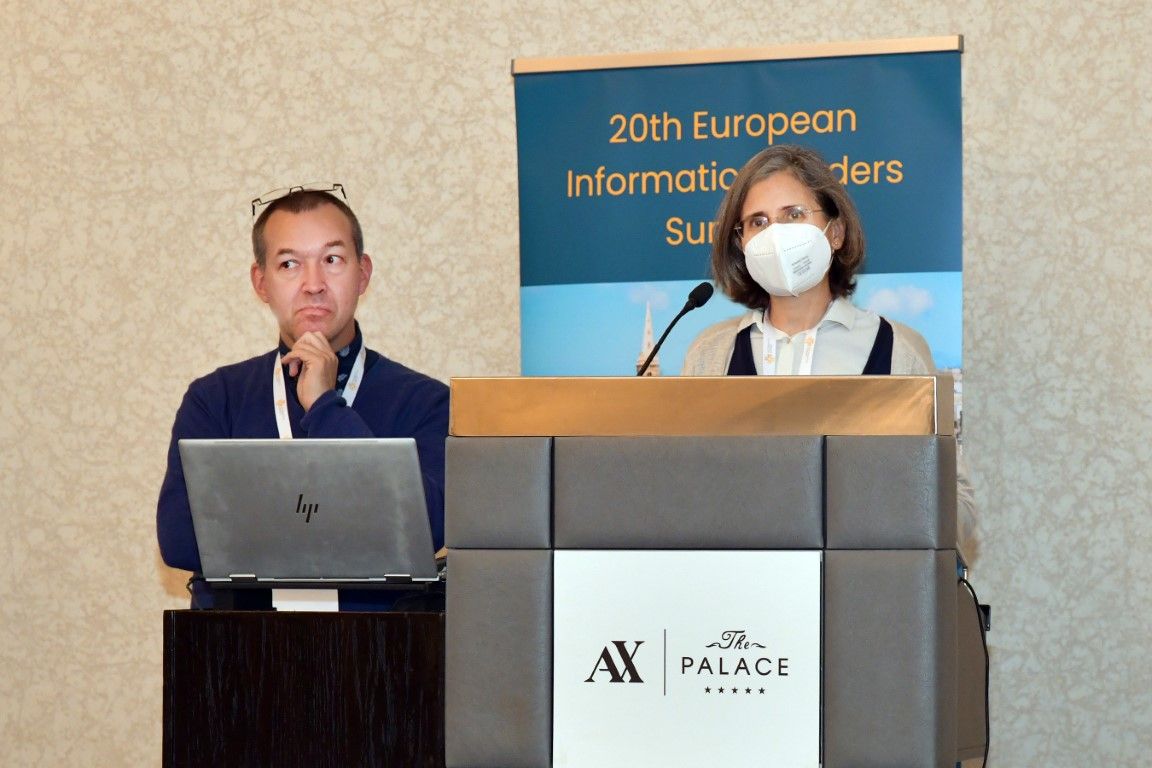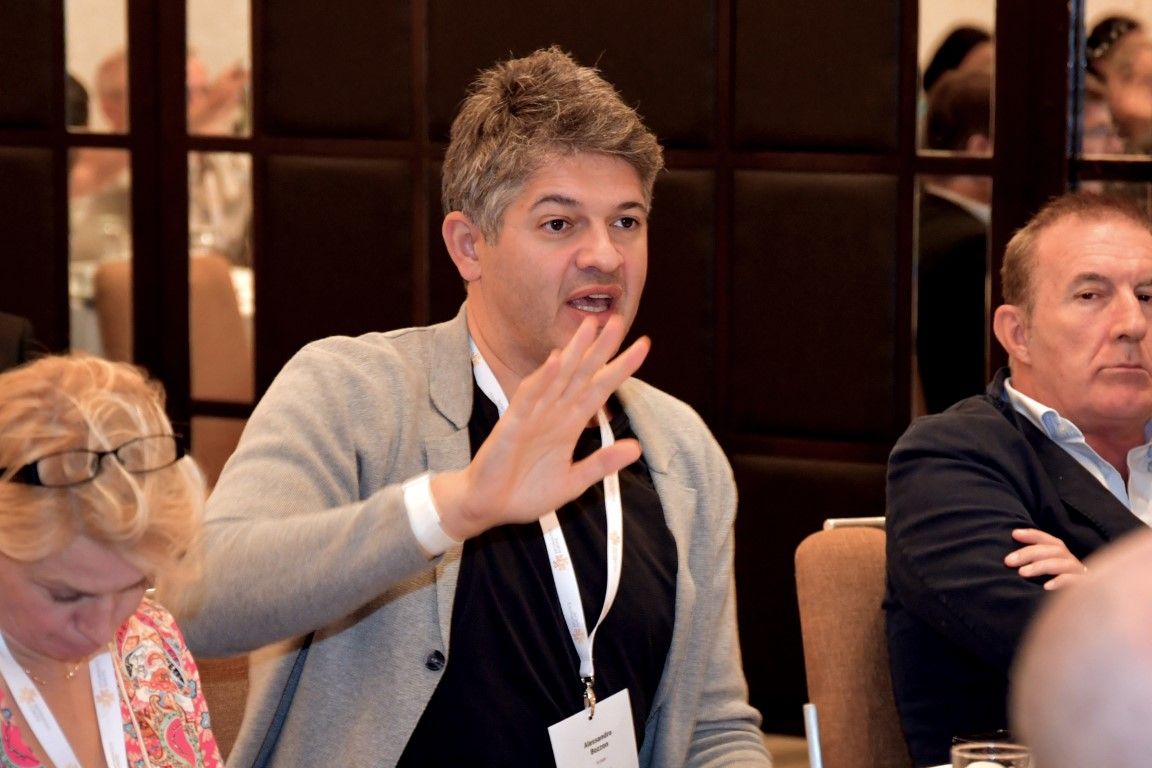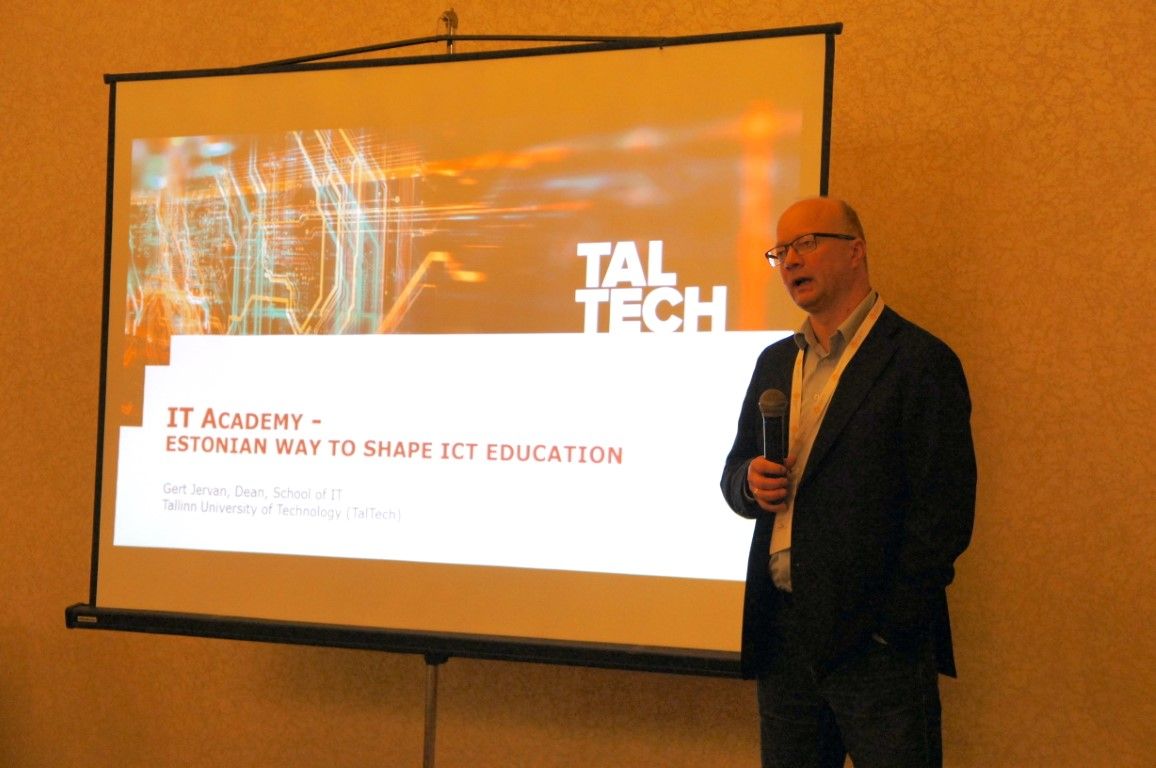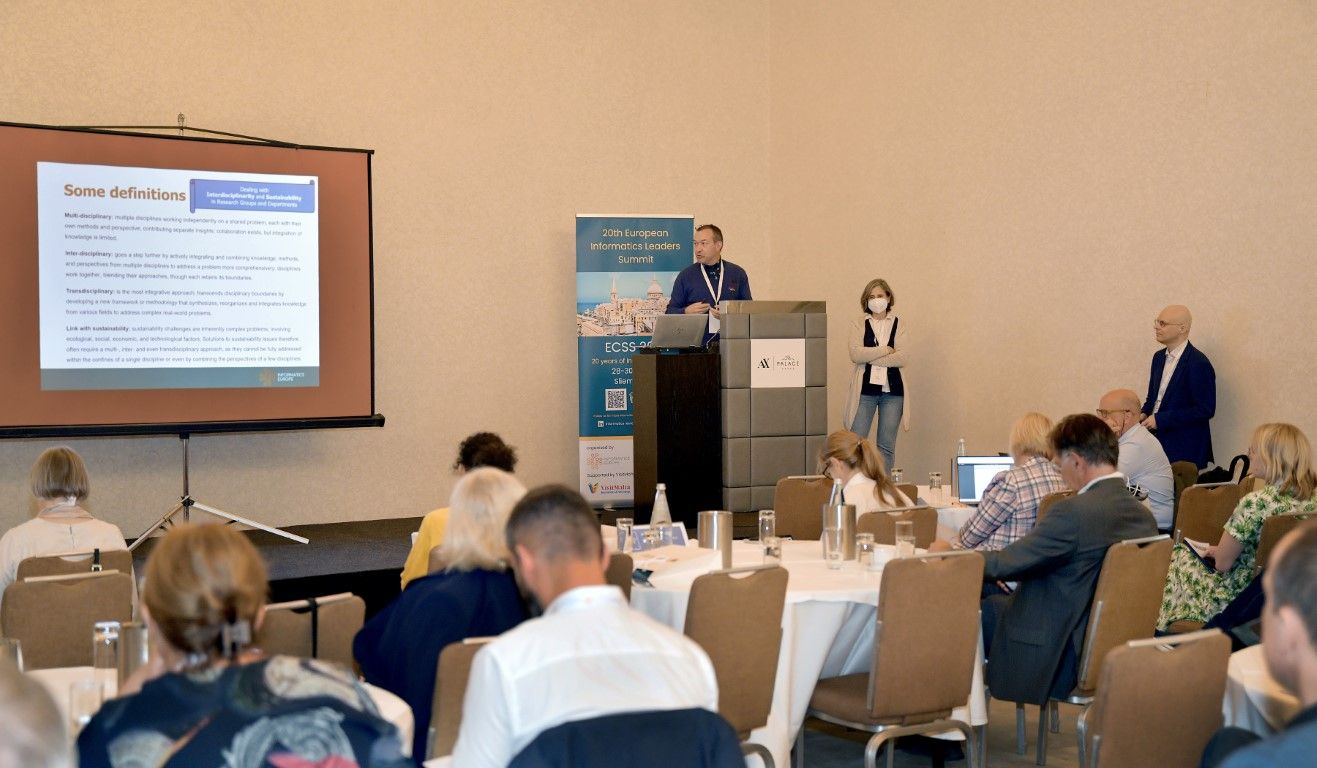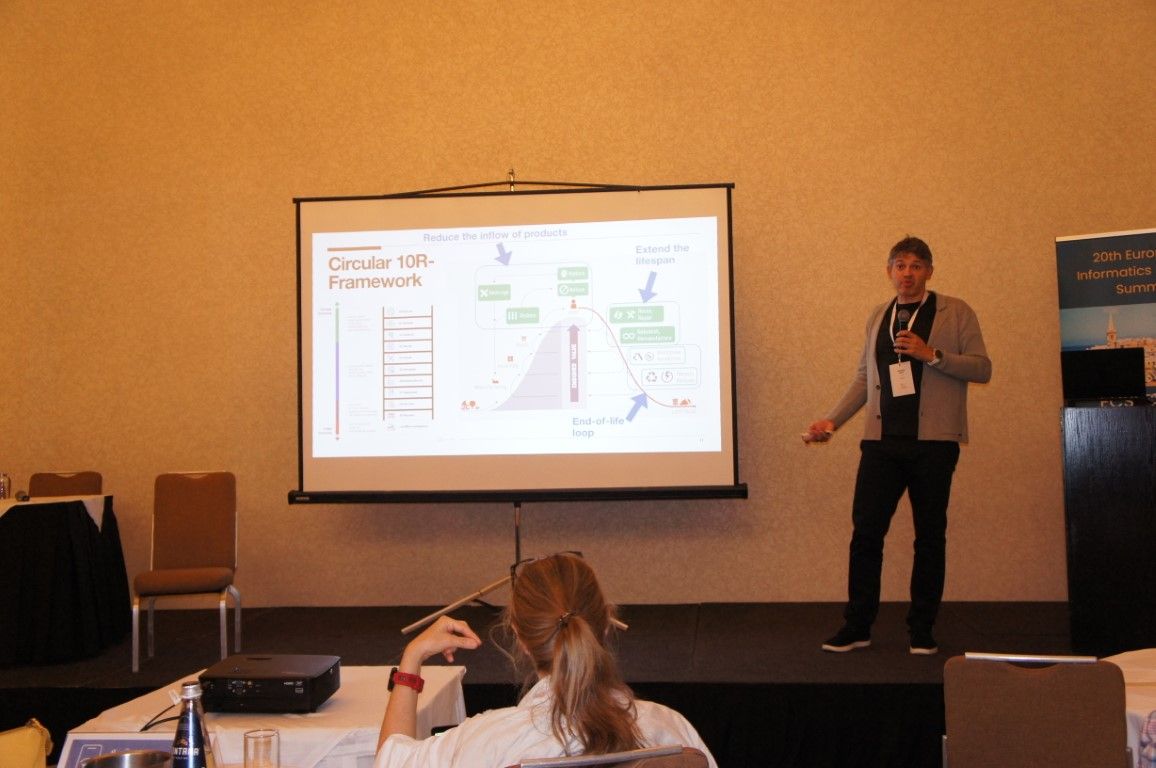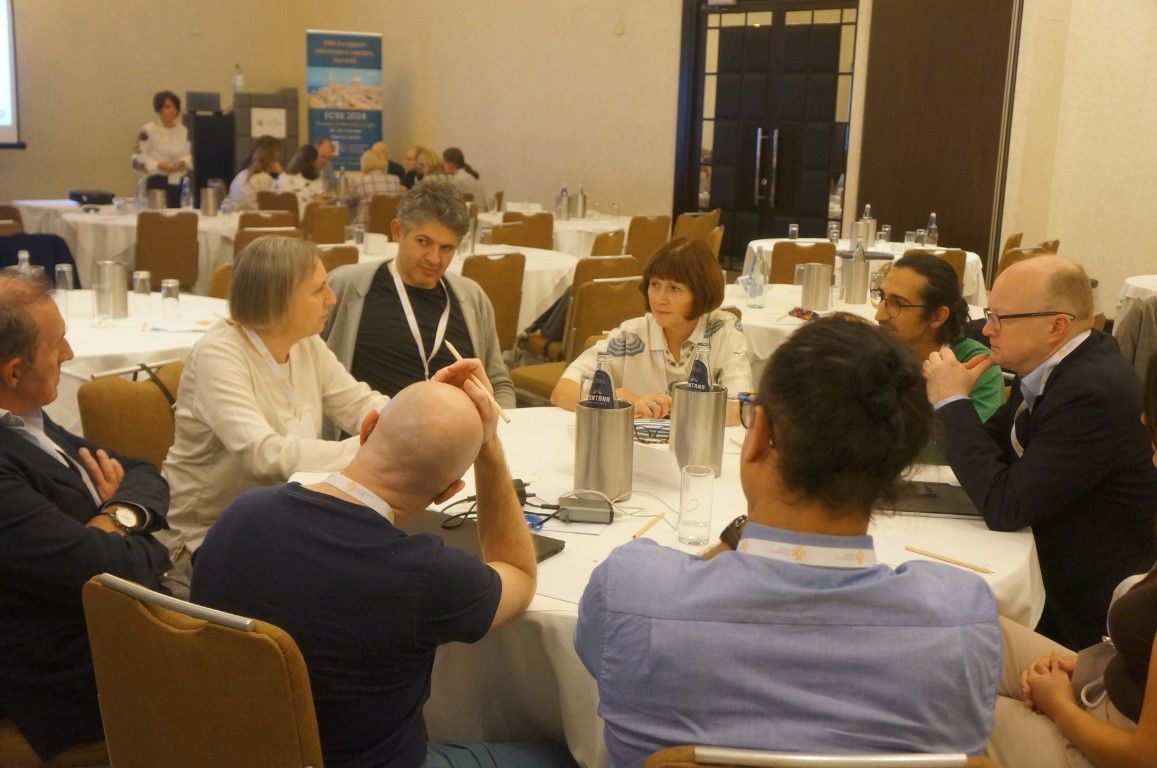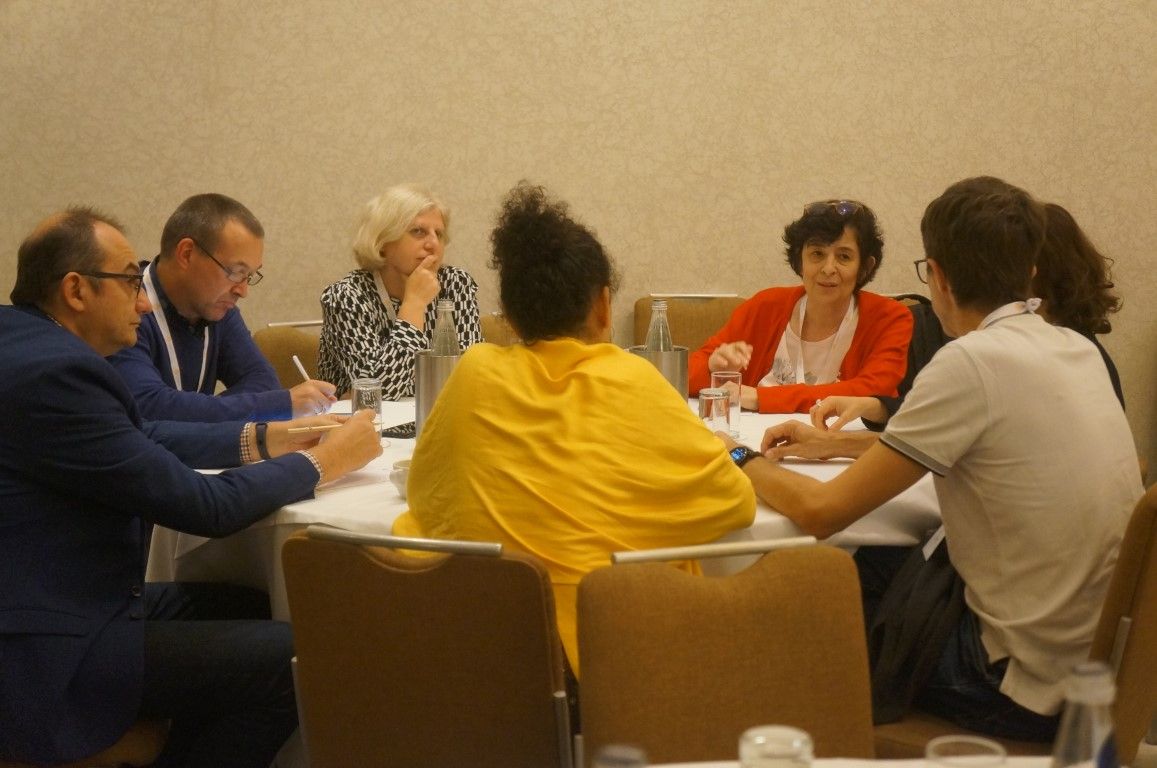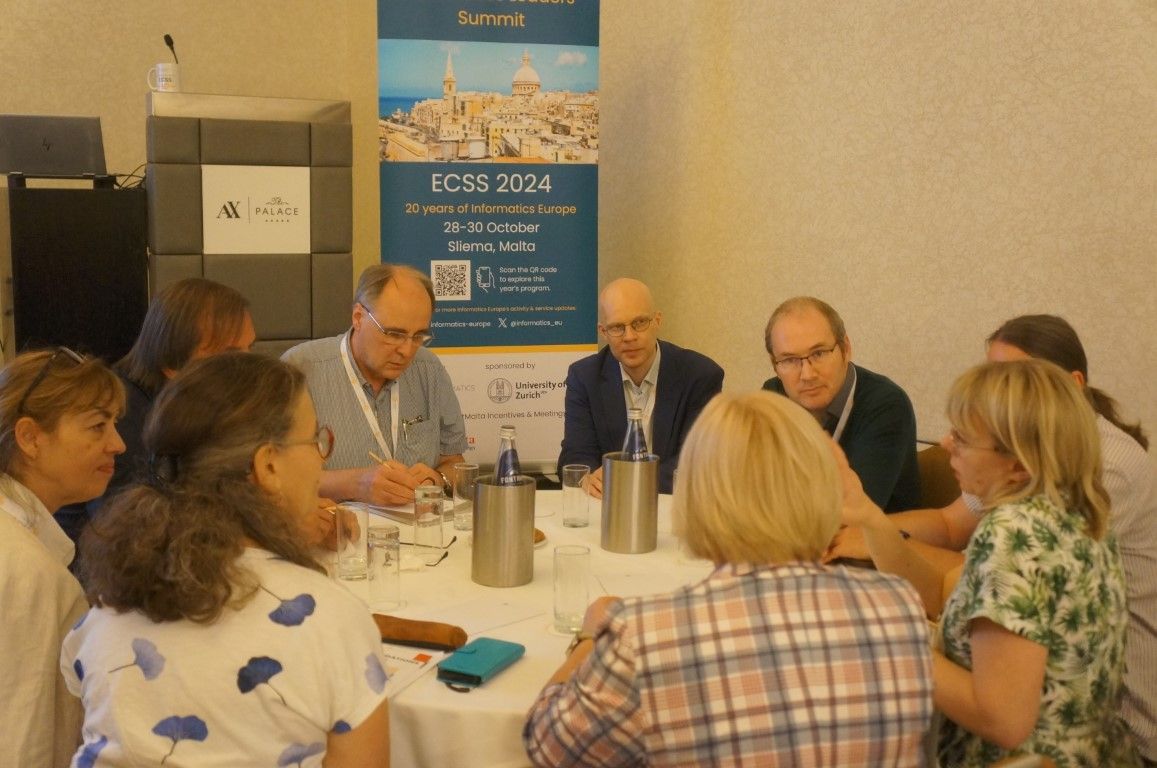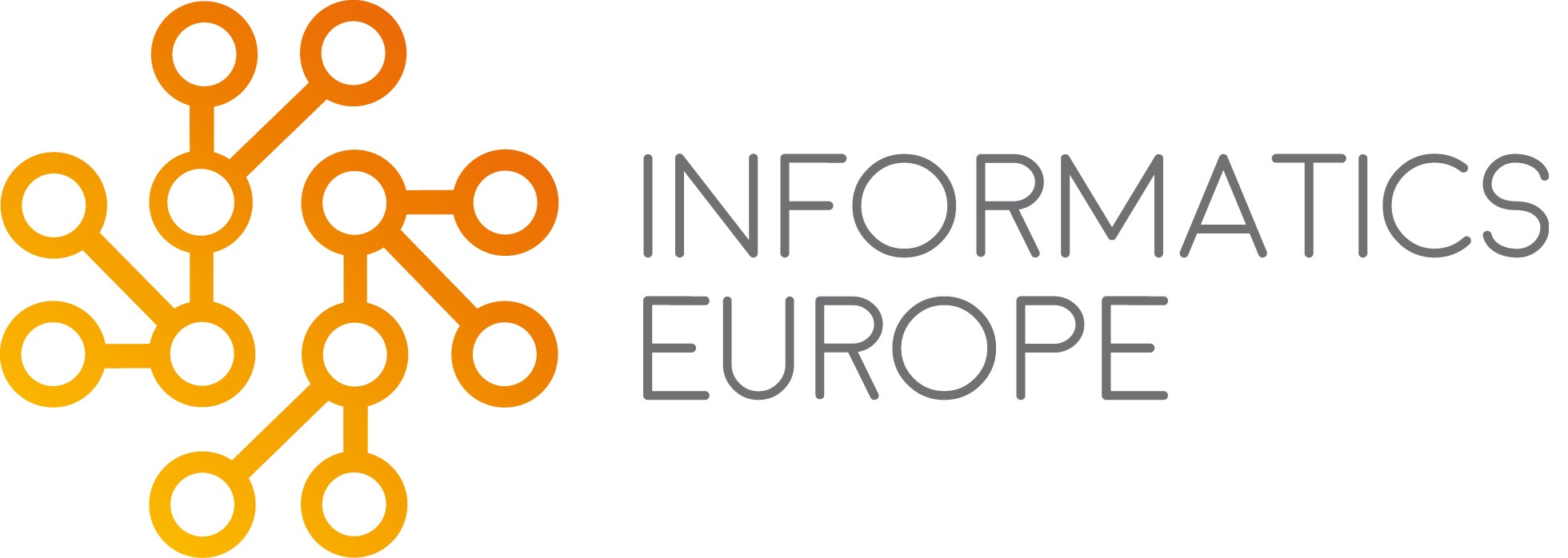Leaders Workshop
Every year Informatics Europe organises a special Workshop for Leaders of Informatics Research and Education, where academic and research leaders of Informatics universities, departments, and research labs address specific challenges they encounter in their role. This year, the workshop was held as part of the ECSS 2024 program on Monday, 28 October, open to all participants and co-chaired by Elisabetta Di Nitto from Politecnico di Milano and Kim Mens from Université catholique de Louvain. The workshop's theme was "Dealing with Interdisciplinarity and Sustainability in Research Groups and Departments", through selected talks by IE members having a clear vision or experience in these areas, and open discussions with the audience.
Workshop Rundown, Slides & Highlights
Read the workshop highlights here.
11:00-11:15 Opening and introduction [Slides]
11:15-12:30 Session 1 – Multidisciplinarity in research
Moderated by Kim Mens (UC Louvain)
Informatics has become one of the core elements in different application areas. How do we organize and manage multidisciplinary research groups? What are the main problems to be faced? How can we find a compromise between multidisciplinarity and the expectations for researchers to acquire an in-depth knowledge and experience in Informatics?
- Introductory speech by Sasu Tarkoma, University of Helsinki (Finland), on "Interdisciplinary Research at the University of Helsinki's Faculty of Science: Lessons Learned and Case Studies" [Slides]
- Experience sharing and discussion - floor open to discussion for the whole audience
12:30-14:00 Lunch break
14:00-15:00 Session 2 – Multidisciplinarity in education
Moderated by Elisabetta Di Nitto (Politecnico di Milano)
Multidisciplinary study courses are being pushed in many countries by decision-makers but are certainly difficult to implement. Can students with different backgrounds attend the same classes? How should they be guided through a multidisciplinary study program? Are there established and replicable best practices? How do students participating in multidisciplinary programs perform?
- Introductory speech by Gert Jervan, Tallinn University of Technology (Estonia), on “IT Academy – Estonian way to shape ICT education” [Slides]
- Experience sharing and discussion - floor open to discussion for the whole audience
15:00-16:00 Session 3 – Sustainability in research and education
Moderated by Kim Mens (UC Louvain)
Sustainability is, by definition, a multidisciplinary area which is itself organized in important and disjoint focuses: environmental, economical, social, technical. What is the status of research and education in achieving sustainable software? What are the disciplines needed to do a good job in this context?
- Introductory speech by Alessandro Bozzon, TU Delft (the Netherlands), on "Leading with Sustainability: Insights from Sustainable Design Engineering"
- Experience sharing and discussion - floor open to discussion for the whole audience.
16:00-16:30 Coffee break
16:30-17:30 Community corner
Moderated by Elisabetta Di Nitto (Politecnico di Milano)
The purpose of this session is to discuss multidisciplinarity and long-term sustainability by and within Informatics Europe. We aim at an open discussion on the role Informatics Europe can play in this area to better serve the community in the next decades.
- Introductory speech by Jean-Marc Jézéquel, Informatics Europe / IRISA / University of Rennes (France), on "The Journey of Informatics Europe" [Slides]
- Discussion - floor open to the whole audience to discuss how to move forward, what to do differently, which topics to work on, etc.
17:30-18:00 Closing and future topics
Support Emerging Leaders
A parallel Early Career Researchers Workshop, including a Doctoral Symposium and Poster Session, was held for early career researchers in informatics and related disciplines. We encouraged established leaders to bring along early career researchers (PhD and/or Postdoc) to ECSS to participate in this Workshop, helping to nurture future leaders in Informatics.
*Please note that the photos below are better viewed when applying zoom out.
